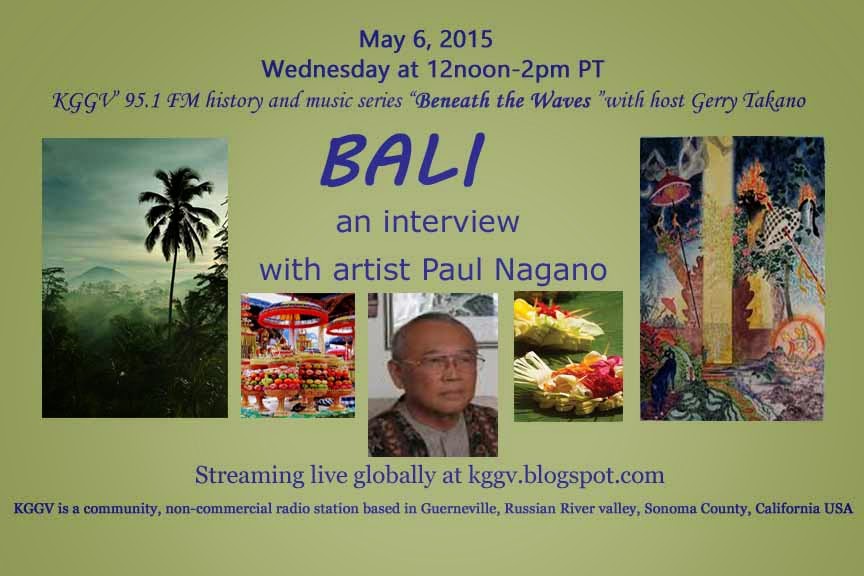Beneath the Waves
Wednesday, 12noon – 2pm PT JULY 22, 2015 host Gerry Takano
DADA
Dada was an
avant-garde artistic and literary
movement (1916-1923) rejecting conventional aesthetic and cultural values
of the time. Works,
marked by nonsense, travesty, and incongruity,
were defined as anti-art, war and bourgeoisie.
Streaming* live globally at <kggv.blogspot.com>
KGGV 95.1 FM Guerneville “The
Bridge” is a community, non-commercial radio station based in
Guerneville, Russian River valley, Sonoma County, northern California USA
*for those unfamiliar with online
streaming: access our website <kggv.blogspot.com> and
press the "stream" button. Your computer will connect
live to the radio station for free and you'll receive an ongoing
audio feed (or stream) with the radio station's programming.











